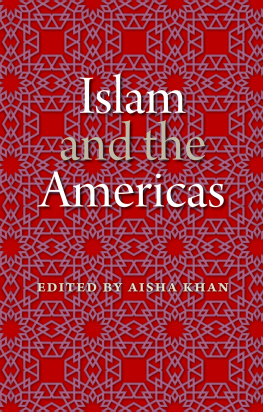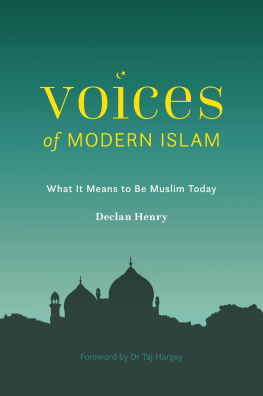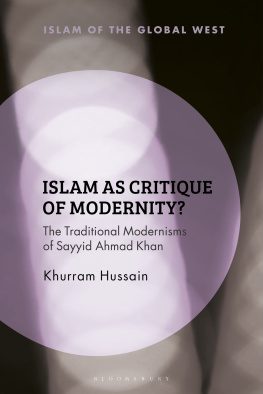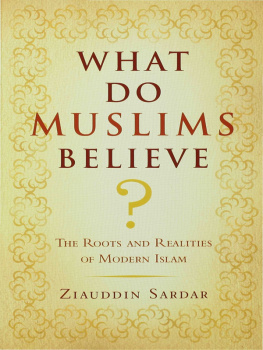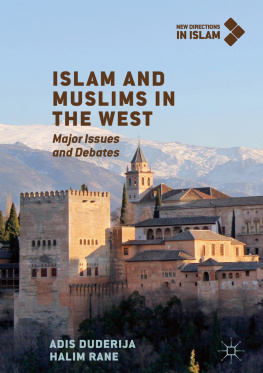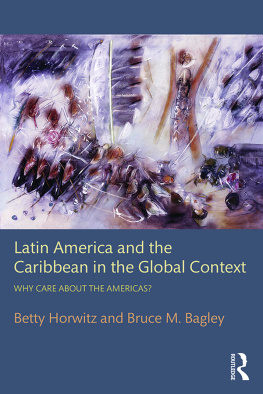
Islam and the Americas
New World Diasporas

UNIVERSITY PRESS OF FLORIDA
Florida A&M University, Tallahassee
Florida Atlantic University, Boca Raton
Florida Gulf Coast University, Ft. Myers
Florida International University, Miami
Florida State University, Tallahassee
New College of Florida, Sarasota
University of Central Florida, Orlando
University of Florida, Gainesville
University of North Florida, Jacksonville
University of South Florida, Tampa
University of West Florida, Pensacola
Islam and the Americas

EDITED BY AISHA KHAN
Kevin A. Yelvington, Series Editor
University Press of Florida
Gainesville Tallahassee Tampa Boca Raton
Pensacola Orlando Miami Jacksonville Ft. Myers Sarasota
Copyright 2015 by Aisha Khan
All rights reserved
Printed in the United States of America on acid-free paper
This book may be available in an electronic edition.
22 21 20 19 18 17 6 5 4 3 2 1
First cloth printing, 2015
First paperback printing, 2017
LIBRARY OF CONGRESS CATALOGING-IN-PUBLICATION DATA
Islam and the Americas / edited by Aisha Khan.
pages cm (New world diasporas)
Includes bibliographical references and index.
Summary: This volume edited by Aisha Khan explores Muslims lived experiences in the Western Hemisphere and the ways in which Islam has been codified in the New World by Muslim minority societies, using disparate case studies from the Caribbean, Suriname, Brazil, Mexico, and others in the Atlantic World.
ISBN 978-0-8130-6013-2 (cloth)
ISBN 978-0-8130-5405-6 (pbk.)
1. IslamNorth America. 2. IslamSouth America. 3. MuslimsNorth America. 4. MuslimsSouth America. I. Khan, Aisha, 1955- editor. II. Series: New World diasporas series.
BP67.A1I765 2015
305.6'97097dc23
2014033318
The University Press of Florida is the scholarly publishing agency for the State University System of Florida, comprising Florida A&M University, Florida Atlantic University, Florida Gulf Coast University, Florida International University, Florida State University, New College of Florida, University of Central Florida, University of Florida, University of North Florida, University of South Florida, and University of West Florida.

| University Press of Florida 15 Northwest 15th Street Gainesville, FL 32611-2079 http://www.upf.com |
Contents
Aisha Khan
Aisha Khan
Jacob S. Dorman
Rosemarijn Hoefte
Nathaniel Deutsch
Omar Ramadan-Santiago
Yarimar Bonilla
Sandra Caas Cuevas
Jerusa Ali
Rhoda Reddock
Gabrielle Jamela Hosein
Jeanne P. Baptiste
Patricia Mohammed
Figures
.
Acknowledgments
This volume emerged from a series of conversations, impressions, and insights that I have had over a number of years with friends, colleagues, and students as we considered the practice and the study of Islam in the Caribbean. This journey of ideas began a couple of decades ago during my dissertation fieldwork and was enriched by early discussions with scholars at the University of the West Indies, St. Augustine, Trinidadnotably, at that time, with Brinsley Samaroo, Rhoda Reddock, and Patricia Mohammed. Since then, with further study and many more conversations, the journey has become increasingly multilayered and complex, broadening the aim and the scope of the subject matter both geographically and analytically and, in the process, revealing the exciting prospect of how much still remains to be learned and understood about Muslims and the lifeworlds that both shape and are shaped by their diverse populations and communities.
I am grateful to the contributors, who, with their carefully crafted and thoughtful work, have made this volume what it is. I am also grateful to the University Press of Florida for their early and unflagging support of the project and to Sally Antrobus for her conscientious editing. Our anonymous reviewers offered indispensable comments and suggestions. In addition, I would like to thank Allyson Purpura for her expert curatorial assistance with images for the volumes cover, and I extend special gratitude to Kate Crehan and Barbara Weinstein for generously providing invaluable feedback on my own two chapters. Finally, I thank the Humanities Initiative of New York University for awarding me a Research Fellowship and a Grants-in-Aid award, which allowed me to devote time to develop and complete this project.

Introduction
A Storied Hemisphere
AISHA KHAN
More than a quarter of a century ago Talal Asad called for scholars to dispense with the convention of approaching Islam in terms of a fixed cast of Islamic dramatis personae, enacting a predetermined story, and instead to understand that the coherence of the world of Islam is essentially ideological, a discursive representation (Asad 1986: 1011). Although scholars have come a long way in challenging essentialist representations of peoples and groups, our interventions have not come close to eliminating public sphere stereotypes of fixed casts of characters and predetermined stories, including those about Muslims and Islam.
This is a book about Muslims as they craft Islam in the New World of the Americas. It is a collection in which the authors encourage cross-cultural comparison through probing and challenging key presumptions about this religious tradition and its practitioners. We are not interested in Islam merely as an end in itself, a given traced from one place to another in the form of migration, diaspora, genealogical or kindred spirit, or conspiratorial alien. Our hope is to foster a better appreciation of the ways in which Islam becomes as well as is, as Muslims (however they may be defined) and those who are not Muslims (however they may be defined) bring Islam to bear on assertions of personhood, contestations of personhood, and the construction of this religious tradition as it serves community-building projectswhether neighborhood, national, or transnational.
As the chapters in this volume attest, Islam makes its presence felt in both direct and oblique ways; its definition and significance are matters of interpretation that vary with the historical moment, particular relations of power, social formation, and Zeitgeist. Islams relationship with the West consists not of mutually exclusive categories hypothetically repelling each other but, rather, a relationship of interlacing encounters that are both face to face and fantasized. These and other considerations challenge standard images of Islam in the popular Western imagination, yet the reiteration of certain themes of mutual exclusivity persists. Still resonant are the stereotypical and allegedly adversarial dichotomies of Islams patriarchy versus the Wests gender equality; Islams terrorism versus the Wests rational democracy; Islams destructive discord versus the Wests reasoned forms of protest; Islams parochialism versus the Wests cosmopolitanism; Islams inertia versus the Wests advancement; Islams traditionalism versus the Wests modernity.
The project of this volume is to explore Islam
Next page
